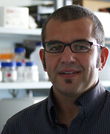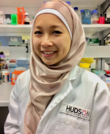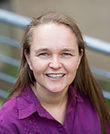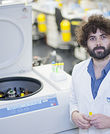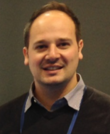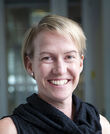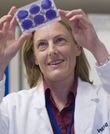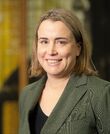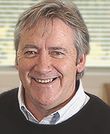
Prof Paul Hertzog
Director
Centre for Innate Immunity and Infectious Diseases
Hudson Institute of Medical Research
paul.hertzog@hudson.org.au
Licensing opportunities
Interferon epsilon therapeutic in cancer and infectious diseaseContract research opportunities
KOL / general expertise in inflammatory disease, cancer immunology, infectionsscreening assays
disease models
Research Activities
=Overall interest is in the molecular regulation of signal transduction in innate immunity. In particular our group is interested in pattern recognition receptor signaling, the elicited transcriptional responses including IRF, STAT, ETS and NFκB pathways and the ensuing cytokine responses. The particular cytokines of interest are the type I interferons (IFNs). We investigate the mechanisms of signaling beginning at engagement of the receptors, IFNAR1 and IFNAR2. Receptor function is studies using human cell systems, genetically modified mouse models, protein-protein interactions, structural biology, imaging and signal transduction studies. We have discovered a new family member involved in mucosal immunity called IFN epsilon which has special functions in the female reproductive tractinfections, inflammatory conditions and cancer. We also investigate negative regulation, of signalling by the SOCS family of cytokines and micro-RNA and other epigenetic mechanisms. We are investigating their regulation of IFN (α, β and γ) as well as TLR signaling. One outcome of our research is a growing capability in cell based screens for activators and inhibitors of innate immunity signaling. We are investigating the global nature of TLR/cytokine/interferon signaling using transcriptomics incorporated with bioinformatics to predict regulatory networks, disease signatures and identify novel transcriptional regulation candidates. One outcome is the INTERFEROME.org database for annotating response pathways. We have a longstanding expertise in the generation of genetically modified mice and their pathophysiological characterisation. Disease models include viral and bacterial infections and models of tumourigenesis. .Techniques/Expertise
Molecular signaling (protein-protein interactions, IP-Westerns, kinases)Screening assays for inflammation, infections
Generation and characterisation of genetically modified mice
Animal models of infectious disease, inflammation and cancer
Bioinformatics and Microarray profiling (human and mouse)
Gene regulatory mechanisms ( EMSA, translocation, ChIP, reporters, promoter mapping)
Flow cytometry
Immunoassays (antibody-based; cell mediated, immpunophenotyping, monoclonal generation)
Collaborations
Prof Jamie RossjohnProf Elizabeth Hartland
B. Parker (Peter MacCallum) – Innate immune pathways in metastasis
L.O’Neill (Trinity College, Dublin) – TLR signaling
E. Latz (Bonn, Germany) – PRR signaling
Hong Tang (CAS, Beijing) – infection and immunity
Prof. Phil Hansbro, University of Newcastle, Australia
Prof. Doug Gollenbock -U.Mass. USA, Prof. Tervor Lawley, Sanger Inst., UK
Dr Nollaig Bourke TrinityCollege, Dublin
Jean-Laurent Cassanova, Rockefeller University, N/Y.
Chritine Wells, University of Melbourne
Disease Models
Variety of viral and bacterial infection models in miceInduced and transplantable tumour models, e.g. mammary and ovarian.
Genetically Modified Organisms
Assorted genetically modified mouse models associated with TLR signaling, cytokine signaling (IFNs IFNARs, STATs, SOCS, etc) and ETS transcription factors (ETS1, ETS2, ELF3, ELF5, GABPa). Include conventional and conditionally targeted lines.Other Lab Members
Dr Nicky de WeerdJodee Gould
Tony Matthews
Dr Jamie Gearing
Zoe Marks
Dr Eveline de Geus
Stephanie Huang
Dr San Lim










